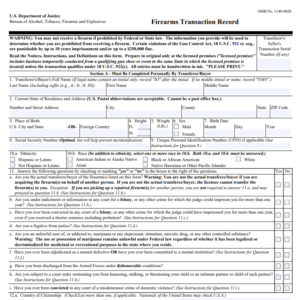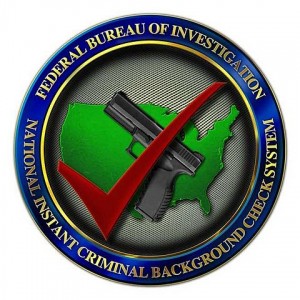I Want to Purchase a Firearm; How Does This Work?
How long does it take? How does the process work?
 For seasoned firearm purchasers, the buying process can be an easy, familiar process but for new buyers the process might seem complicated or overwhelming. Fear not, the process is actually easy and straight forward.
For seasoned firearm purchasers, the buying process can be an easy, familiar process but for new buyers the process might seem complicated or overwhelming. Fear not, the process is actually easy and straight forward.
Gun laws, of course, vary by state with a dozen and a half or so states requiring some form of waiting period and other states requiring special licenses or registration of firearms. However, one thing is universally true – when you buy a firearm from a licensed dealer, you must fill out some paperwork and, generally, go through a background check process (sometimes called a “Brady Check”).
One of the most frequent questions I hear from new purchasers at the gun counter, right up there with (and sometimes ahead of) cost and features, is how the process works and how long it takes.
Since most states (including ours) do not have additional waiting periods or extra licensing or registration, we will not address those things here and will, instead, focus on the standard nationwide process.
Getting the ball rolling
 After selecting the firearm they want, the buyer begins the purchasing process by filling out the Firearms Transaction Record (ATF Form 4473).
After selecting the firearm they want, the buyer begins the purchasing process by filling out the Firearms Transaction Record (ATF Form 4473).
On the 4473, the buyer lists their personal information that is used to identify them including name, address, date and place of birth, and characteristics like height, weight, and sex. Additional information, like a social security number, may also be provided to help the process go more quickly.
The form also has a place to enter a Unique Personal Identification Number (UPIN) – if you don’t know yours, or if you even have one, don’t worry – you probably don’t have one. This is basically an ID number that can be assigned by the FBI to help speed up the process if you are a legal buyer but frequently get delayed or incorrectly denied.
The next part of the 4473 that the purchaser completes is a series of questions that essentially provide an initial check to see if the transaction is allowed to continue. These are things like whether the buyer is actually purchasing the firearm for themselves (versus an illegal straw purchase) and whether they may be a prohibited person. Certain wrong answers in this section can immediately shut down the transaction at this point since they will likely cause the transaction to fail later in the process, so it is important to carefully read the questions and answer honestly.
Once the buyer portion of the 4473 is completed by the purchaser, the seller will verify that the identity of the buyer matches what is on the form and fill in additional information about the transaction, including details about the firearm being purchased.
After the form is completed, the process continues.
Background Checks and Responses
 Since the Brady Bill took effect in 1994, background checks (or a background check alternative) have been required on all firearm transactions. More than half of the states have some form of Brady Check Alternative, most often associated with holding a concealed weapons license.
Since the Brady Bill took effect in 1994, background checks (or a background check alternative) have been required on all firearm transactions. More than half of the states have some form of Brady Check Alternative, most often associated with holding a concealed weapons license.
If the buyer does not qualify for a Brady alternative, the transaction continues by submitting the buyer’s information to the FBI’s National Instant Criminal Background Check System (NICS).
Despite NICS being called an “instant” background check system, the response does not always come back instantly, although a response is typically returned anywhere from a few seconds to a few minutes. Depending on the system status and volume of checks being performed by the FBI, getting a response may take longer.
The NICS will give one of three responses that basically boil down to:
- Proceed – Your background check came back clean and you are approved to get your firearm. (You may or may not actually receive your firearm that day depending on state law mandated waiting periods).
- Deny – Something came up in your background check that prevents the transaction from being able to be completed. No information is provided with this response to why the transaction is denied, so gun store staff will not be able to tell you why. If you feel like the denial is incorrect, you can appeal the denial.
- Delay – This response is essentially a non-response that means that NICS cannot come up with either of the two other answers without further background research. Again, gun store staff do not have any additional information about why you may have been delayed, but often it can be because someone with a similar name has a criminal record or if you have something on your record that requires a closer look to ensure that you are not a prohibited person. Under federal law, if no further response is given after three full business days, the firearm may be released to the purchaser, although tighter restrictions may be imposed on a state-by-state basis.
And that’s it. While the process may sound complicated and overwhelming, it is really just as simple as providing some information about yourself and undergoing a background check based on that information. If all goes smoothly, it’s New Gun Day!
Remember that once you have your new firearm, it is your responsibility to be a safe and responsible gun owner. This means obeying gun safety rules, keeping firearms out of the wrong hands, and training and becoming familiar with your firearm. To discuss all things firearms related, visit the GunLink Forums.








